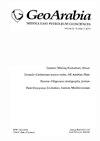东地中海黎凡特盆地含油气系统的二维盆地模拟研究
引用次数: 15
摘要
黎凡特盆地已探明油气资源,但仍是一个前沿盆地。在尼罗河三角洲海域,已经有了重要的石油和天然气发现,例如上新世的几个天然气区和芒果井,在下白垩纪岩石中日产能约10,000桶。最近,Noble Energy公司发现了两个天然气“巨人”(bb50 TCF和一个估计为16 TFC),其中一个位于水深约1,700米(5,577英尺)的前墨西米亚地层中。区域二维(2-D)含油气系统模拟表明,烃源岩在整个盆地都有生烃作用。本文利用井和二维地震数据解释以及PetroMod2D技术对黎凡特盆地的含油气系统进行了深入研究。构造遵循新特提斯洋开合的一般过程:裂谷伸展-被动边缘-挤压。地层包体厚度达15公里,由混合硅-碳酸盐-蒸发岩相组成。提出了5个潜在烃源岩层段(三叠系—古新世)。老烃源岩干酪根完全转化,而新烃源岩干酪根不太成熟。有几种潜在的储盖岩。该模型表明,整个盆地的构造圈闭和地层圈闭都存在油气聚集。本文章由计算机程序翻译,如有差异,请以英文原文为准。
2-D Basin modeling study of petroleum systems in the Levantine Basin, Eastern Mediterranean
The Levantine Basin has proven hydrocarbons, yet it is still a frontier basin. There have been significant oil and gas discoveries offshore the Nile Delta, e.g. several Pliocene gas plays and the Mango Well with ca. 10,000 bbls/day in Lower Cretaceous rocks and recently, Noble Energy discovered two gas “giants” (> 5 TCF and one estimated at 16 TFC) one of which is in a pre-Messinian strata in ca. 1,700 m (5,577 ft) water depth. Regional two-dimensional (2-D) petroleum system modeling suggests that source rocks generated hydrocarbons throughout the basin. This paper provides insight into the petroleum systems of the Levantine Basin using well and 2-D seismic data interpretations and PetroMod2D. Tectonics followed the general progression of the opening and closing of the Neo-Tethys Ocean: rift-extension, passive margin, and compression. The stratal package is up to 15 km thick and consists of mixed siliciclastic-carbonate-evaporite facies. Five potential source rock intervals (Triassic – Paleocene) are suggested. Kerogen in the older source rocks is fully transformed, whereas the younger source rocks are less mature. There are several potential reservoir and seal rocks. The model suggests that oil and gas accumulations exist in both structural and stratigraphic traps throughout the basin.
求助全文
通过发布文献求助,成功后即可免费获取论文全文。
去求助
来源期刊

Geoarabia
地学-地球科学综合
自引率
0.00%
发文量
0
审稿时长
>12 weeks
期刊介绍:
Cessation. Published from 1996 to 2015, GeoArabia, The Journal of the Middle Eastern Geosciences was a quarterly journal covering the petroleum geosciences in the Middle East. The journal covers subjects such as: - sedimentology - tectonics - geophysics - petroleum reservoir characterization
 求助内容:
求助内容: 应助结果提醒方式:
应助结果提醒方式:


